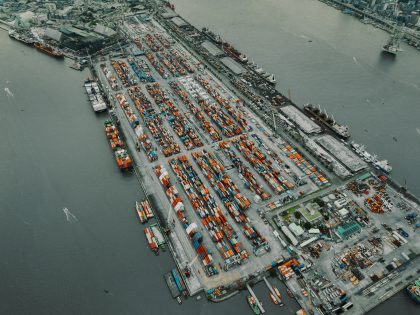Age of Revolt
Mobilization through the ages
- 1791–1804: The Haitian Revolution
- The first successful slave revolt leads to Haitian independence.
- 1830s–1880s: Abolition of Slavery in the Atlantic World
- Formal abolition occurs in various countries, leading to shifts in African labor systems.
- 1884–1885: The Berlin Conference
- European powers partition Africa into colonial territories.
- 1896: Battle of Adwa (Ethiopia)
- Ethiopian forces defeat the Italian army.
- 1905–1907: Maji Maji Rebellion (German East Africa)
- Armed resistance to German colonial rule.
- 1914–1945: World Wars & Colonial Repression
- African soldiers participate in global conflicts while colonial rule persists.
- 1945: Pan-African Congress (United Kingdom)
- Post-war meeting of African and diaspora leaders in Manchester.
- 1952–1960: Mau Mau Uprising (Kenya)
- Armed rebellion against British rule.
- 1957: Independence of Ghana
- Ghana becomes the first sub-Saharan African country to gain independence.
- 1960: Year of Africa
- Seventeen African nations gain independence.
- 1961: Formation of Non-Aligned Movement
- Establishes a bloc of countries independent from Cold War superpowers.
- 1963: Formation of the Organization of African Unity (OAU)
- A continental body aimed at cooperation and decolonization.
- 1968: Protests of 1968
- Student, worker, and anti-imperialist uprisings erupt across the world, from May ‘68 in France to the Prague Spring and the anti-Vietnam War demonstrations.
- 1973: Oil Crisis
- Economic shifts affect African economies.
- 1974: The New International Economic Order (NIEO)
- A UN initiative led by Global South nations advocating for fairer global trade and economic policies.
- 1975: End of Portuguese Colonial Rule
- Angola, Mozambique, and Guinea-Bissau achieve independence.
- 1976: Soweto Uprising (South Africa)
- Student protests against apartheid education policies.
- 1977: Bread Riots (Egypt)
- Protests over government subsidy cuts.
- 1979: Iranian Revolution
- Mass mobilization and strikes bring down the Shah’s regime, establishing a theocratic state and altering Middle East geopolitics.
- 1980: Independence of Zimbabwe
- Official transition from white minority rule.
- 1983–1987: Government of Thomas Sankara (Burkina Faso)
- Implementation of socialist policies before his assassination.
- 1988: October Riots (Algeria)
- Protests against economic conditions and state repression.
- 1989–1991: Structural Adjustment Programs
- Implementation of IMF and World Bank economic reforms across Africa.
- 1990: National Conference Movements
- Pro-democracy mobilizations in Francophone Africa.
- 1992: Multi-Party Elections in Kenya
- Legalization of opposition parties.
- 1994: First Democratic Elections in South Africa
- Formal end of apartheid governance.
- 1994: Rwandan Genocide
- A hundred days of mass violence result in the deaths of over 800,000 people.
- 1994: Zapatista Uprising (Mexico)
- Indigenous-led rebellion in Chiapas challenges neoliberal globalization and inspires transnational solidarity movements.
- 1998: Transition from Military Rule in Nigeria
- The country returns to civilian governance.
- 1999: The Battle of Seattle (United States)
- Protesters shut down the World Trade Organization summit, galvanizing the global anti-capitalist and anti-globalization movements.
- 2000: Land Reform in Zimbabwe
- Redistribution of land from white farmers to Black Zimbabweans.
- 2001: Durban Anti-Racism Conference (South Africa)
- A global conference on racism and discrimination.
- 2003: Iraq War Protests
- Millions march worldwide against U.S. militarism, marking the largest coordinated global protest in history.
- 2005: Post-Election Crackdown in Ethiopia
- Arrests and repression following disputed elections.
- 2005: Gas War (Bolivia): Indigenous and popular mobilizations force political change, paving the way for Evo Morales’s presidency.
- 2007: Post-Election Violence in Kenya
- Ethnic and political conflict following contested elections.
- 2008: Global Financial Crisis
- Economic downturn with global consequences.
- 2009: Green Movement (Iran)
- Post-election protests challenge authoritarian rule, signaling the re-emergence of mass dissent in the Middle East.
- 2011: Arab Spring
- Protests in Tunisia, Egypt, Libya, and other countries.
- 2011: Walk to Work Protests (Uganda)
- Demonstrations against the rising cost of living.
- 2011: Occupy Wall Street (United States)
- Anti-austerity and anti-corporate protests influence global mobilizations.
- 2012: Occupy Nigeria
- Protests against fuel price hikes.
- 2012: Y’en a Marre (Senegal)
- Youth-led political mobilization.
- 2013: Gezi Park Protests (Turkey)
- Anti-authoritarian demonstrations in Istanbul.
- 2013: Movimento Passe Livre (Brazil)
- Protests against public transport fare hikes.
- 2013: MPigs & Unga Revolution (Kenya)
- Protests against parliamentary corruption and food prices.
- 2013–14: Maidan Revolution (Ukraine)
- Mass protests in Kyiv oust the government and trigger a profound geopolitical reordering.
- 2014: Umbrella Movement (Hong Kong)
- Pro-democracy protests challenge Beijing’s influence.
- 2014: Anti-Compaoré Protests (Burkina Faso)
- President Blaise Compaoré resigns after demonstrations.
- 2015–16: Fees Must Fall & Rhodes Must Fall (South Africa)
- Student-led protests against tuition fees and university policies.
- 2016: Standing Rock (United States)
- Indigenous-led resistance against an oil pipeline.
- 2017: Anti-Gnassingbé Protests (Togo)
- Demonstrations calling for political change.
- 2018: Anti-Bashir Protests (Sudan)
- Public mobilization against President Omar al-Bashir.
- 2018: Chilean Feminist Movement
- Massive protests against gender violence and inequality.
- 2019: Hirak Movement (Algeria)
- Protests against President Abdelaziz Bouteflika’s bid for a fifth term.
- 2019: Estallido Social (Chile)
- Demonstrations against inequality lead to constitutional reform.
- 2020: End SARS (Nigeria)
- Demonstrations against police violence.
- 2020: Black Lives Matter (United States)
- Sparked by the murder of George Floyd, BLM protests inspire global movements against police violence and racism.
- 2021: National Strike in Colombia
- Mass mobilization against economic inequality and government repression.
- 2021: Anti-Sall Protests (Senegal)
- Anti-government protests following the arrest of opposition leaders.
- 2022: Women, Life, Freedom (Iran)
- Anti-state protests following the death of Mahsa Amini.
- 2022: Anti-Kais Saied Protests (Tunisia)
- Protests against the president’s consolidation of power.
- 2023: Coup Wave in West Africa
- Military takeovers in Burkina Faso, Niger, and Gabon.
- 2024: Gen Z Protests (Kenya)
- Demonstrations against government tax policies.



















